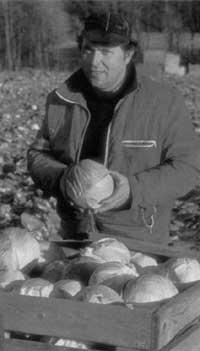Feed vegetables against pollution?
Soil pollution is an increasingly worrying and serious problem. A report published by the European Commission reveals that it can hinder the development of the economy if no solution to industrial soil pollution is sought.

A team of researchers from the University of Oxford is working on this, to rule out chemical anti-pollution treatments and break the path of bioremediation is using a curious technique that consists of planting Aza and cauliflower in contaminated soils, which will allow “clean” these departments.
Of course, the herons and cauliflower that resist pollution are not the ones we find in the local market. This is due to the need for genetic adaptations with the absorption capacity of heavy metals to meet this objective. Oxford researchers believe this and everything seems to indicate that they are correct.
Researchers have shown that some plants easily remain in soils contaminated by heavy metals. Zinc, bromine or lead do not affect the development of plants, but accumulate metals, which does not harm them.
According to the researchers, therefore, natural absorption processes can replace very costly chemical procedures. It is said that the amino acid called histidine is the key to absorbent plants, so for them to produce this substance, plants will be manipulated genetically.
At the Central Biotechnology Center in Madrid, for its part, work is being done on the manufacture of a bacterium that accumulates heavy metals, which aims to demonstrate the same hypothesis that Oxford researchers, that biorepair can be effective in cleaning soils contaminated by heavy metals.





